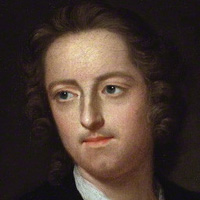Thomas Gray - Biography and Works
Thomas Gray was born on 26 December 1716 as the fifth child to Philip Gray and Dorothy Antrobus in Cornhill, London. He was a poet, letter-writer, classical scholar, and professor at Pembroke College, Cambridge. His famous Elegy Written in a Country Churchyard, published in 1751 gave him name and fame. He issued only 13 poems and was offered the position of the Poet Laureate in 1757, but he rejected it.

Thomas Gray (1716-1771)
As a boy, Gray was a gentle and studious boy who avoided games and enjoyed reading and learning from the books. Gray went to Eton College and in 1734, he went up to Peterhouse, Cambridge, where he found everything dull; the curriculum, the masters, and the friends.
Gray's main writing career started in 1742 when his best friend Richard West died. He became one of the most learned men of his time. He remained as a scholar in Cambridge and in the later part of his life he started travelling. He is one of the best known members of Graveyard Poets of the late 18th century. His major focus on the poem was death, mortality, and sublimity of the death.
His masterpiece is the Elegy Written in a Country Churchyard written in 1742 and published in 1751. It is one of the most famous and often quoted poems in English literature. It is said that the elegy is written in the memory of the death of his close fellow Richard West. It gave him immense success and huge popularity. This poem celebrates the humble life of villagers and the novelty of the poem lies in the treatment of the same theme of generous death in a different manner. He mourns for the death of all the average men and the poet himself.
Gray also penned light verse, including Ode on the Death of a Favorite Cat, Drowned in a Tub of Gold Fishes, a mock elegy concerning Horace Walpole's cat. Some of his best known poems are "Ode on the Spring," "Sonnet on the Death of Mr. Richard West," "Hymn to Adversity," and "Ode on a Distant Prospect of Eton College." Gray considered The Progress of Poesy and The Bard, as his best works. Gray has the ability of sharp observation and playful sense of humor. He is popular for his phrase, "where ignorance is bliss, 'tis folly to be wise."
During his free time, Gray travelled extensively to places such as Yorkshire, Derbyshire, Scotland and especially the Lake District in search of striking landscapes and ancient monuments. In the last part of his life he kept himself busy in the studies of Celtic and Scandinavian ancient times and became gradually introverted. At the age of 55 in 1771 he died and was buried in the country churchyard at Stoke Poges, Buckinghamshire, celebrated in his "Elegy."
